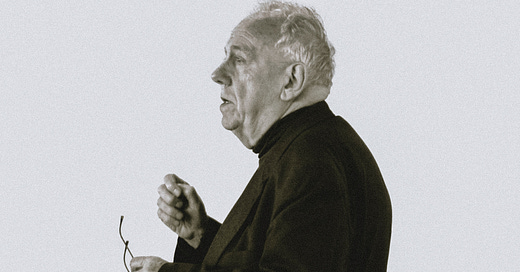Alasdair MacIntyre died this month. I never met him and I know only a fraction of his work; but I admire what I have read. That includes After Virtue, his big-picture history of moral thought, on which “emotivism”—the theory that ethical claims are expressions of subjective sentiment, not belief—is apt to the cacophony of contemporary moral language.
For MacIntyre, emotivism is not true of ethics, as such, but of its present confusion. We can restore truth to ethical thought by going back to Aristotle, finding standards of human flourishing in a conception of human beings as social animals, embedded in practices whose goods are inaccessible without the virtues of character.
When I first read After Virtue, I was not sympathetic to neo-Aristotelianism in ethics, and I still don’t understand how practices can do the work that MacIntyre claims. Maybe he failed to understand either, since he later turned to Thomas Aquinas as a model for neo-Aristotelian ethics: God gives us more resources t…
Keep reading with a 7-day free trial
Subscribe to Under the Net to keep reading this post and get 7 days of free access to the full post archives.



